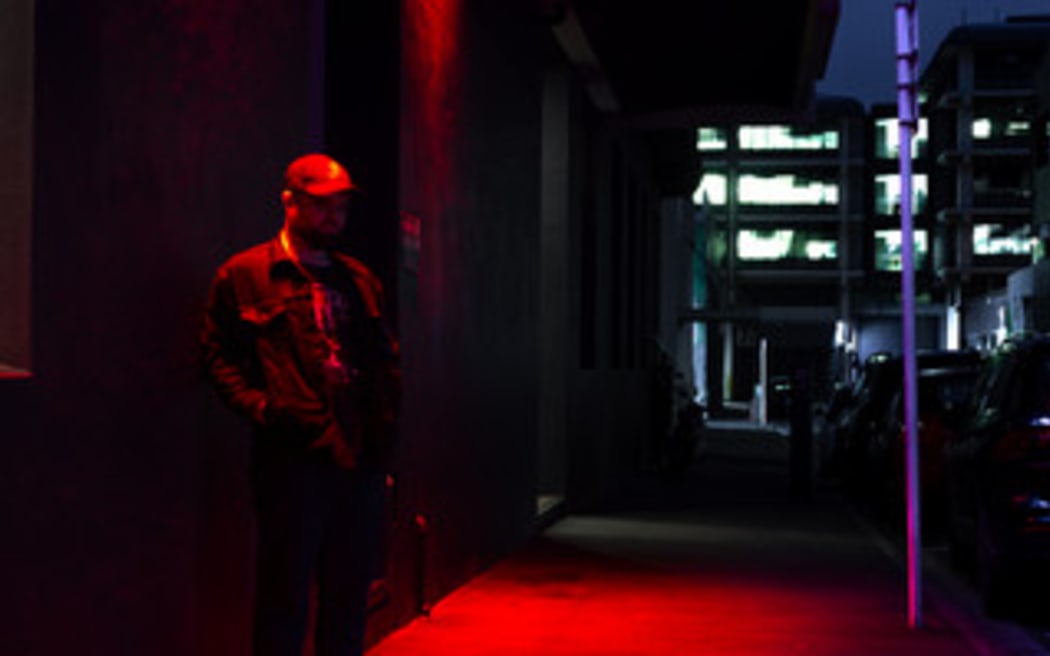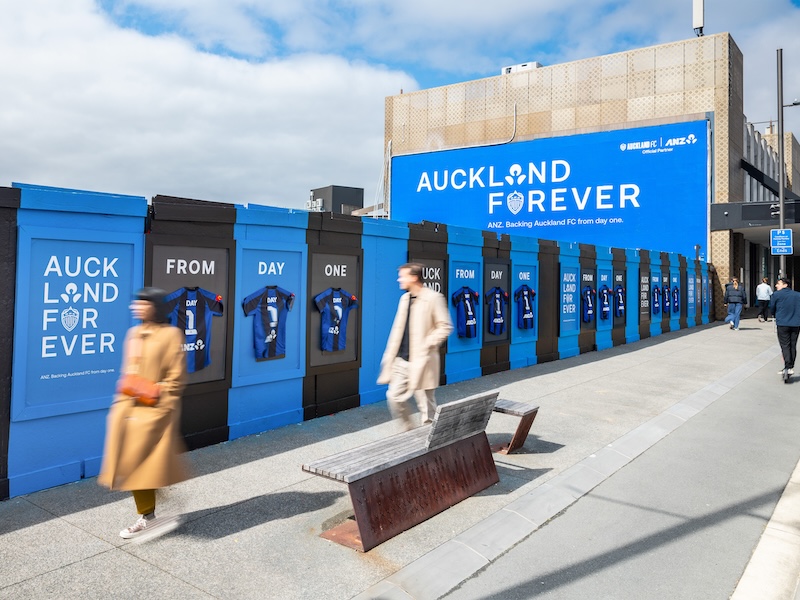By Chris Schulz
Daniel Johann shuns most interviews – and the spotlight.
Photo: Supplied
He won’t play live, rejects expensive studios, shuns the local industry and declines many interviews. Yet, with his low-fi fuzz-rock songs, Daniel Johann has become a streaming sensation, more popular than almost every other local artist. After two years of negotiations, he agreed to talk to Chris Schulz.
Daniel Johann isn’t great with dates, but he believes it was around 2018 when his life really changed for good. He was at university while working part-time for a political polling company in Pōneke – a “terrible” job he can’t discuss because of an NDA – when he had a thought: he should probably see how his album was going.
Five years earlier, he had commissioned a company to upload his debut album to Spotify and manage any income it might make. That record, called melanchole, was made when he was just 15. Recorded in just a few weeks, it is a collection of rough and raw songs inspired by the isolation Johann felt growing up in the small township of Collingwood, near Nelson.
There, he had struggled with debilitating epileptic attacks that would hit up to 20 times a day. He couldn’t play sport or get a part-time job, the things many of his peers were doing.
“It was some pretty torturous stuff,” he says. “It was the most depressed I’ve ever been.” Instead, he raided his dad’s music collection, and taught himself guitar.
At the peak of what he calls his “angsty teen” phase, Johann recorded 13 moody, low-fi, drone-rock songs in the bedrooms and garages of friends and family members. He used makeshift equipment and whispered his vocals while his mate Ike played drums. When his songs were done, he released them, to little fanfare, under the name salvia palth – a play on the name of the American poet Sylvia Plath.
Johann only expected those closest to him to ever hear that album. “I just put it out,” he says. “No one cared about this kind of music at all. Rock music was dead … and I was just a kid.” His album was, he says, just a practice effort, an attempt to get better so that “one day I could make a good album”.
So, when he checked his account many years later, he wasn’t expecting much. Without knowing it, melanchole had become a slowburn streaming sensation. His songs were connecting with tens of thousands of moody teens just like Johann, those who felt isolated or depressed, sitting alone in bedrooms around the world, playing his songs over and over, again and again.
‘It’s ridiculous. I make too much money.’
At that time, Johann was broke. His job, the only one he has ever had, was only three hours a day. “I was living on nothing, asking my mum for money,” he says.
He still made music, but under his own or other names, and it was more electronic than the guitar-based melanchole. He didn’t know what to do with his life. “I had no other skills,” he says.
So when he saw more than $US10,000 had accumulated from streaming, Johann immediately quit his job. In the years since, melanchole has only grown in popularity, propelling him to become New Zealand’s third-biggest streaming artist on Spotify, the world’s largest music service. His seven million monthly listeners places him behind only pop juggernaut Lorde and Kimbra. He is listened to more than Benee, Six60 and L.A.B. combined.
The album a teenage Johann made over a handful of weeks has made him rich. “It’s ridiculous,” he says. “I make too much money.”
Yet Johann’s story is at odds with almost every other local artist. He rejects the kinds of things most musicians dream of. He refuses to play live. He’s not big on social media. He doesn’t want to move overseas. “It’s not like I’m trying to be a celebrity,” he says.
It’s only in the past month that he’s finally found time to capitalise on melanchole‘s success. In June, Johann released a second salvia palth album, called last chance to see. It is, by every metric, a better album: Johann’s singing has improved. So has his playing, and his songwriting. It took Johann more than 10 years to make it. Like his first, it came out with little fanfare.
That’s because Johann doesn’t talk much. I first requested an interview with him more than two years ago. He seemed interested, but refused to talk over Zoom or on the phone, suggesting we instead go ten pin bowling, or wander around Wellington Zoo together.
After months of back-and-forth, we seemed close to setting a date. I booked flights but tested positive for Covid just hours before I was due to leave. A few months later, I tried to reschedule our interview. He ghosted me.
One day recently, I happened to be in Wellington for family reasons. “I have been meaning to revisit the Dilmah Tea Lounge for a while,” Johann messaged me, via X (formerly Twitter). “But it’s a strange place to go alone.” Did I want to drink tea with New Zealand music’s black sheep and discuss his strange path to success? Yes, I very much did.
‘It was a couple million. Then it was five million’
Johann noticed the YouTube comments first. Because he didn’t think anyone would listen to melanchole, he didn’t bother setting up an account on the video streaming platform. Instead, fans did it for him. They wanted to listen to his songs, to share them, to connect with like-minded friends and talk about how his music made them feel.
Comments from salvia palth fans are often bleak. Under the YouTube clip for ‘i was all over her’, Johann’s least favourite but most popular melanchole song, the vibe is clear. “This song is literally there for my loneliest moments,” writes one. “Every day I just feel like I’m losing myself even more,” posts another. “I don’t even know who I am. I’m just going deeper into my sadness.”

Johann began earning enough to live off his music in 2019.
Photo: Supplied
Reading those comments was the first time Johann first realised his songs were connecting with people. As Spotify grew and iTunes made way for Apple Music, streaming algorithms began picking up melanchole‘s teenage vibes. “It just got into the algorithm when YouTube was recommending a lot of shoegaze-y stuff,” he says. “It was a couple million. Then it was five million. I realised, ‘This is a song people like’.”
We’re talking, as promised, in the Dilmah Tea Lounge. Johann arrived just a few minutes late in jeans and a zip-up jersey, a black sheep dressed all in black. In publicity photos, his face is always obscured. He’s often standing in shadows. That’s exactly the way he likes it. “To this day … there are large swathes of people I’d rather not know who I am,” he says. “The fewer images of myself are online the easier my life will be.”
Soon, though, Johann has a steaming mug of herbal tea in his hands. He sips at it regularly while telling me his story. It lands scattered and confused, but compelling and loaded with dry wit. “Anthony Kiedis should have been fired a long time ago,” is his take on the Red Hot Chili Peppers. He complains about a radio interview he did recently in which the host stuck to a list of preplanned questions. “We lost the ability to have a human conversation,” he says.
In between his wry observations, Johann reveals far more detail about his strange path to success than I can find anywhere else online. That day he checked melanchole‘s streaming income changed his life. By 2019, he was earning enough to live off his music, so much that he didn’t need to accept any of the many live performance requests that came his way. He still doesn’t. To date, he’s only played two shows, and one of those was a DJ set.
Instead of grinding it out on the touring circuit like most local musicians, Johann has managed to make the notoriously fickle streaming algorithms work for him. He knows he’s lucky, and he’s grateful for that. “It’s hard to compare [my journey] to other people. I don’t understand the expenses of the average musician. I have such a bare-boned operation,” he says. “It’s just me.”
‘I made it as a kid, naively, by accident’
Salvia palth is, Johann admits, a terrible name. “It’s not like I like it,” he says, shrugging his shoulders. Yet his success means he’s been forced to stick with it. On last chance to see, the songs are more modern, and far slicker, than his debut. The album has received near universal praise. Yet, more than a month on, the songs from last chance to see – with names like ‘still i struggle’ and ‘always freaking out’ – are not even close to hitting the same numbers as melanchole.
Some have just hundreds of views on YouTube; on Spotify, none have yet managed to top any of his melanchole tracks, some of which have received millions of streams. ‘i was all over her’, his 2013 anthem to feeling lost and alone, is sitting at 502 million streams, more than many Taylor Swift songs.
Like his debut, the success of last chance to see may take time. Or Johann may always be known for the songs he made and released at the age of 15. If so, he’s okay with that. “I’ve made peace with it,” he says. He knows his fans want a certain thing from him now. “If I put out anything that doesn’t appease the audience of salvia palth, they’d just be annoyed.”
Why, then, 10 years on, do his angsty teen anthems keep getting played, keep getting streamed, keep connecting with people? Johann has theories. Yes, there will always be a new batch of teenagers wanting to find a soundtrack for their vibes. He’s made that for them, and melanchole is sitting there when they’re ready.
But he also believes the way he makes his music – shunning expensive studios in favour of a low-fi, DIY way – was the start of a movement that’s still being copied today. “It’s the default sound for music now,” he says. “Listen to … Billie Eilish or Charli XCX. They whisper, they distort their vocals, they’re never singing properly … it’s all taken from that movement I think I was a part of.”
After nearly two hours, we’ve finished our tea, and Johann refuses to let me pay. “The music’s been going pretty well,” he deadpans. There’s a quick goodbye and he’s off, back into the shadows. When we’ll hear from him next, he doesn’t know. Whatever he does next, it won’t be the same as melanchole. “I can’t imitate that,” he says, “because I made it as a kid, naively, by accident.”





















Discussion about this post